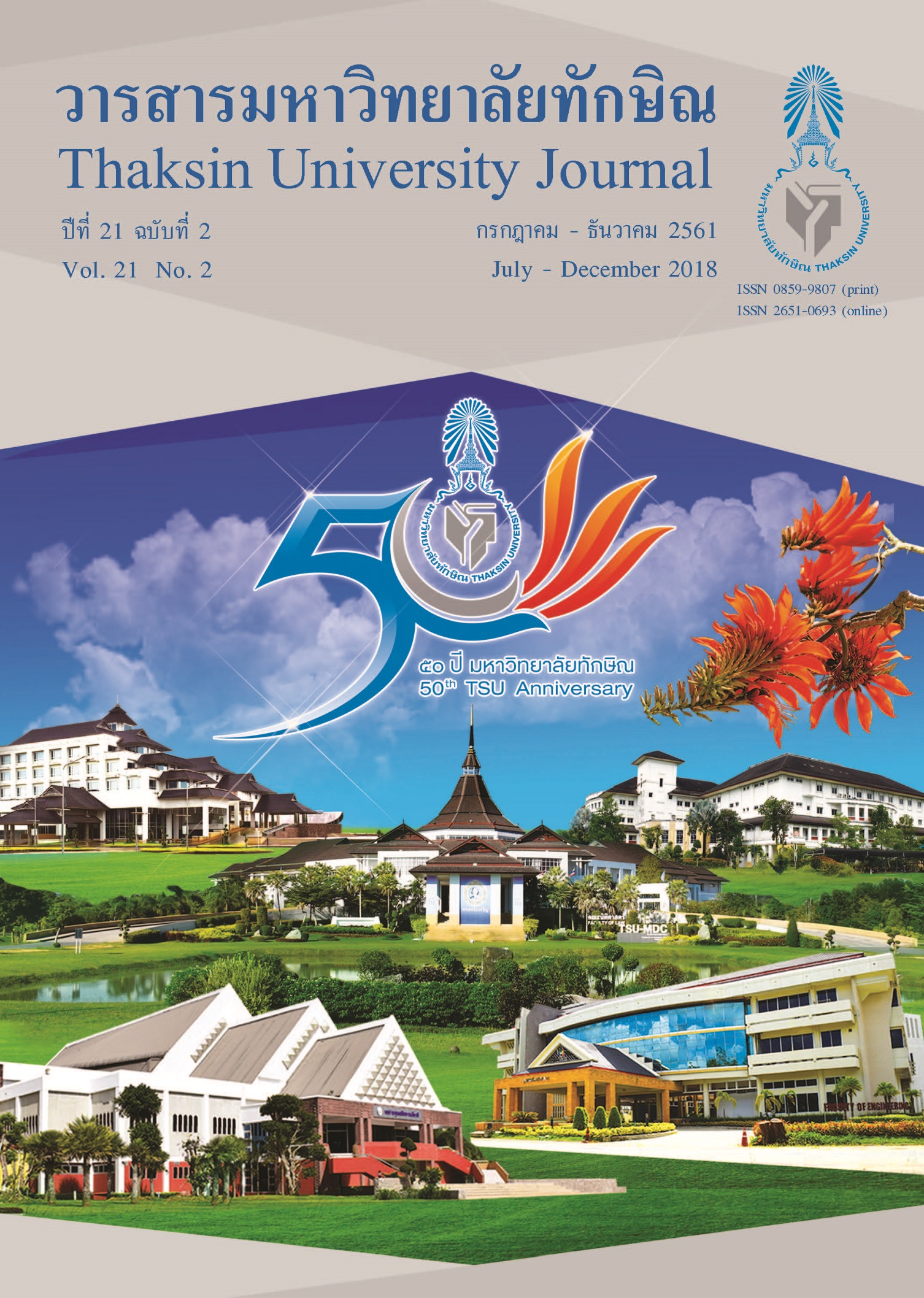Arbitrary Ray Tracing to Locate Image Formed by a Thin Lens or Spherical Mirror
Main Article Content
Abstract
This article presents an alternative method for ray tracing to locate image position for thin lenses and
spherical mirrors without using the principle rays but arbitrary rays instead. This method can be used to engage
in fundamental geometric optics classroom to enhance students’ understanding as well as to overcome some
misconception about image formation by thin lenses or spherical mirrors particularly in cases of a partial covered lens/mirror and a compound system of lenses or mirrors dealing with virtual object.
Article Details
Section
Research Articles

This work is licensed under a Creative Commons Attribution-NonCommercial-NoDerivatives 4.0 International License.
References
[1] Young, H.D., Freedman, R.A. and Ford, A.L. (2010). Sears & Zemansky’s University Physics: with
Modern Physics. 13th Edition, Addison-Wesley, Sanfancisco, 1124-1135.
[2] Goldberg, F.M. and McDermott, L.C. (1987). “An Investigation of Student Understanding of the Real Image
Formed by a Converging Lens or Concave Mirror”, American Journal of Physics. 55, 108-119.
[3] Suppapittayaporn, D., Phanijpan, B. and Emmarat, N. (2010). “Can We Trace Arbitrary Rays to Locate an
Image Formed by a Thin Lens?”, The Physics Teacher. 48(4), 256-257.
[4] Valadares, E.C. and Cury, L.A. (1996). “An Image is Worth a Thousand Rays”, The Physics Teacher. 34,
432-433.
[5] Leinoff, S. (1991). “Ray Tracing with Virtual Objects”, The Physics Teacher. 29, 275-277.
[6] Jenkins, F.A. and White, H.E. (1957). Fundamentals of Optics. McGraw-Hill, New York, 44-53.
Modern Physics. 13th Edition, Addison-Wesley, Sanfancisco, 1124-1135.
[2] Goldberg, F.M. and McDermott, L.C. (1987). “An Investigation of Student Understanding of the Real Image
Formed by a Converging Lens or Concave Mirror”, American Journal of Physics. 55, 108-119.
[3] Suppapittayaporn, D., Phanijpan, B. and Emmarat, N. (2010). “Can We Trace Arbitrary Rays to Locate an
Image Formed by a Thin Lens?”, The Physics Teacher. 48(4), 256-257.
[4] Valadares, E.C. and Cury, L.A. (1996). “An Image is Worth a Thousand Rays”, The Physics Teacher. 34,
432-433.
[5] Leinoff, S. (1991). “Ray Tracing with Virtual Objects”, The Physics Teacher. 29, 275-277.
[6] Jenkins, F.A. and White, H.E. (1957). Fundamentals of Optics. McGraw-Hill, New York, 44-53.


